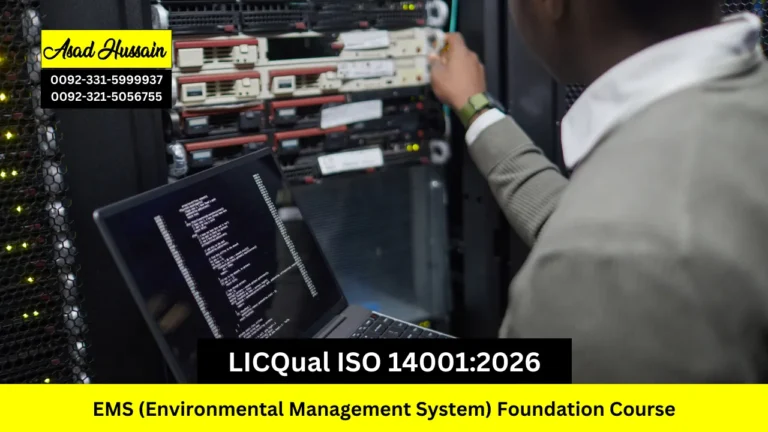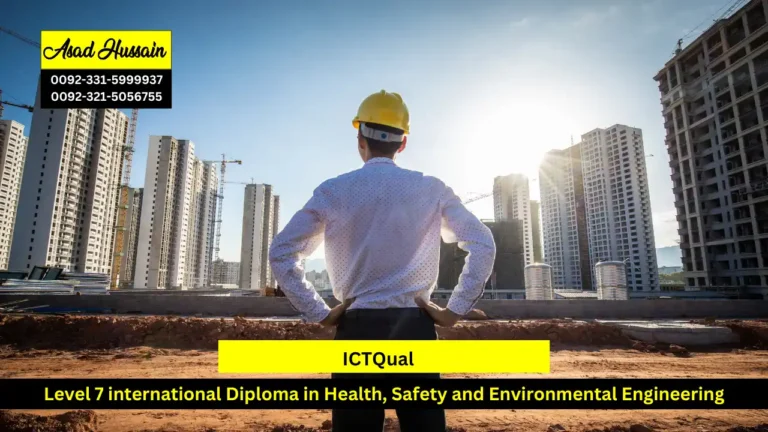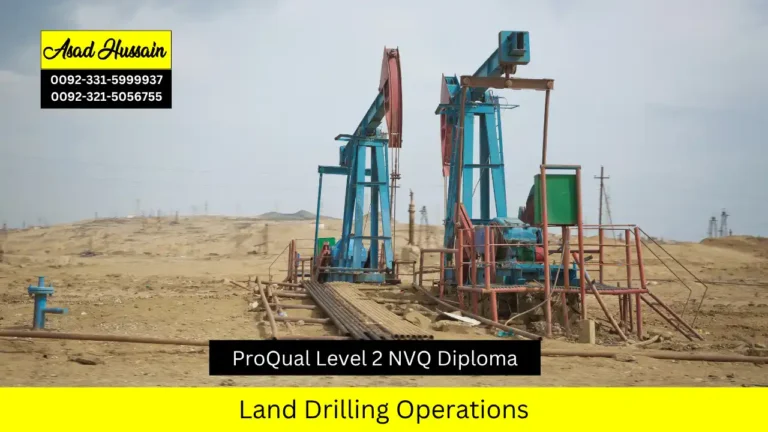The LICQual Level 7 Postgraduate Diploma in Healthcare Administration is designed to provide an in-depth understanding of healthcare management, governance, finance, and leadership practices. This strategic healthcare administration programme prepares learners for senior management and decision-making roles within hospitals, healthcare organisations, and government agencies. Through comprehensive modules and case-based learning, students develop the ability to analyse, evaluate, and implement effective health service policies that contribute to organisational success and patient care excellence.
LICQual Level 7 Postgraduate Diploma in Healthcare Administration is the development of strategic and analytical skills needed to lead complex healthcare organisations. Learners will gain competencies in healthcare finance, human resource management, quality improvement, and health informatics—critical areas that define modern healthcare leadership. Healthcare Administration encourages critical thinking and innovative problem-solving to meet the evolving demands of global healthcare systems.
This healthcare administration postgraduate diploma also enhances learners’ ability to apply theoretical knowledge to practical challenges. Through real-world projects, simulations, and evidence-based assignments, students will gain hands-on experience in decision-making, policy implementation, and organisational leadership. These practical insights ensure graduates are fully prepared to handle the operational and strategic responsibilities of healthcare administration.
Program Highlights
Mandatory Units
- Strategic Leadership and Governance in Healthcare
- Global Healthcare Policy and Strategic Planning
- Healthcare Financial Management and Budgetary Control
- Human Resource Management and Organisational Development in Healthcare
- Innovation, Technology, and Digital Transformation in Healthcare
- Research Methods and Project in Healthcare Administration
the LICQual Level 7 Postgraduate Diploma in Healthcare Administration are designed to ensure that learners possess the necessary academic background, professional experience, and communication skills to succeed in this advanced qualification. This programme is ideal for individuals who aspire to progress into senior management or administrative roles within the healthcare sector.
Age Requirements:
- Applicants should be at least 21 years of age or above at the time of enrolment.
- This ensures that learners have the maturity and foundational experience required to handle postgraduate-level studies in healthcare administration.
Educational Requirements
- Candidates must hold a Level 6 qualification, such as a bachelor’s degree in healthcare management, public health, business administration, or a related discipline.
- Applicants with an equivalent international qualification will also be considered, provided their previous education demonstrates sufficient academic rigour and relevance to the healthcare field.
Professional Experience:
- Learners are expected to have relevant professional experience in healthcare, administration, management, or a related area.
- A minimum of two years of supervisory or managerial experience is preferred, as this background allows learners to apply theoretical concepts to real-world healthcare environments effectively.
English Language Proficiency:
- Since this programme is delivered in English, applicants must demonstrate English language proficiency.
- Learners whose first language is not English should possess an IELTS score of 6.0 or equivalent qualification. Alternatively, applicants with prior education or professional experience in an English-speaking environment may be exempted from this requirement.
The LICQual Level 7 Postgraduate Diploma in Healthcare Administration provides an excellent pathway for professionals seeking to advance their leadership careers or pursue higher academic studies, such as the LICQual Level 8 Diploma in Strategic Management and Leadership. Meeting these entry requirements ensures that learners are well-prepared to benefit from the academic depth and practical relevance of this internationally recognised postgraduate qualification.
The LICQual Level 7 Postgraduate Diploma in Healthcare Administration is structured to develop advanced knowledge, strategic insight, and professional leadership skills for individuals aspiring to excel in healthcare management. The qualification integrates theoretical concepts with practical applications, allowing learners to lead effectively, manage resources efficiently, and contribute to global healthcare improvements. Upon completion, learners will demonstrate competence in governance, policy-making, financial management, human resource development, innovation, and research within healthcare environments.
Strategic Leadership and Governance in Healthcare
Upon successful completion of this unit, learners will be able to:
• Analyse leadership theories and governance models applicable to healthcare organisations.
• Apply strategic leadership practices to influence decision-making and organisational direction.
• Evaluate governance frameworks that ensure transparency, accountability, and ethical compliance.
• Formulate effective strategies to manage performance, mitigate risk, and ensure organisational sustainability.
• Demonstrate advanced leadership skills in managing multidisciplinary healthcare teams.
Global Healthcare Policy and Strategic Planning
Upon successful completion of this unit, learners will be able to:
• Examine international healthcare policies, structures, and strategies affecting global health systems.
• Develop strategic plans aligned with global healthcare standards and sustainable development goals.
• Evaluate the influence of governmental and intergovernmental policies on healthcare management.
• Formulate strategies that promote equitable, accessible, and efficient healthcare services.
• Apply policy analysis tools to measure the effectiveness and sustainability of healthcare initiatives.
Healthcare Financial Management and Budgetary Control
Upon successful completion of this unit, learners will be able to:
• Apply advanced financial management techniques in healthcare budgeting and cost control.
• Analyse financial statements and performance indicators to support data-driven decisions.
• Prepare, monitor, and evaluate healthcare budgets to achieve financial stability and growth.
• Assess various healthcare funding models and identify areas for financial improvement.
• Implement strategic financial planning methods that promote value-based healthcare delivery.
Human Resource Management and Organisational Development in Healthcare
Upon successful completion of this unit, learners will be able to:
• Analyse human resource management functions that drive staff performance and organisational success.
• Design effective recruitment, retention, and workforce development strategies for healthcare organisations.
• Evaluate the impact of organisational culture and structure on employee engagement and productivity.
• Apply performance management systems that enhance service quality and employee satisfaction.
• Demonstrate effective leadership in managing workforce diversity, motivation, and conflict resolution.
Innovation, Technology, and Digital Transformation in Healthcare
Upon successful completion of this unit, learners will be able to:
• Evaluate the impact of technological innovation on healthcare delivery and patient outcomes.
• Implement digital transformation strategies integrating telehealth, electronic records, and AI technologies.
• Analyse ethical, legal, and security considerations in digital healthcare environments.
• Apply innovation management frameworks to design and implement technological healthcare solutions.
• Assess the role of digital tools in promoting operational efficiency and healthcare accessibility.
Research Methods and Project in Healthcare Administration
Upon successful completion of this unit, learners will be able to:
• Understand and apply research methodologies appropriate for healthcare management studies.
• Design and conduct independent research projects addressing healthcare administrative challenges.
• Analyse and interpret quantitative and qualitative data to support evidence-based decision-making.
• Develop practical solutions and policy recommendations based on research outcomes.
• Present research findings effectively, adhering to academic and professional standards.
The LICQual Level 7 Postgraduate Diploma in Healthcare Administration enables learners to achieve excellence in healthcare leadership and strategic management. By mastering these learning outcomes, graduates will possess the analytical, managerial, and research skills required to make meaningful contributions to healthcare innovation and sustainability. This qualification also offers a progression pathway toward the LICQual Level 8 Diploma in Strategic Management and Leadership or advanced studies in healthcare administration.
The LICQual Level 7 Postgraduate Diploma in Healthcare Administration is an internationally recognised qualification designed for healthcare professionals, administrators, and managers aspiring to take on senior leadership roles within healthcare systems. In today’s dynamic healthcare environment, where operational excellence, patient safety, and strategic innovation are essential, this qualification empowers learners to lead with confidence, manage complex healthcare operations, and drive organisational transformation. The Healthcare Administration provides advanced knowledge, analytical skills, and leadership expertise required to strengthen healthcare governance, policy development, and service delivery in alignment with international standards.
Healthcare Leaders and Senior Managers
• Professionals currently in or aspiring to executive or senior management roles within hospitals, clinics, and healthcare systems.
• Leaders responsible for formulating healthcare strategies, managing departments, and improving operational performance.
• Individuals aiming to enhance their strategic leadership, problem-solving, and decision-making skills.
• Managers focusing on boosting healthcare efficiency, service quality, Healthcare Administration and patient satisfaction.
• Professionals committed to applying governance frameworks that ensure accountability, compliance, and ethical leadership.
Healthcare Administrators and Policy Makers
• Policy makers, administrators, and directors engaged in developing and implementing healthcare management frameworks.
• Professionals overseeing healthcare quality assurance, risk management, and regulatory compliance.
• Individuals responsible for designing healthcare policies that align with national and international healthcare objectives.
• Administrators managing multi-disciplinary teams, healthcare budgets, and institutional performance improvement projects Healthcare Administration.
• Leaders dedicated to advancing sustainable healthcare governance, reform, and organisational accountability.
Clinical and Operational Healthcare Professionals
• Doctors, nurses, and allied health professionals aspiring to transition into healthcare leadership and management roles.
• Practitioners aiming to combine clinical expertise with administrative and strategic management skills.
• Professionals seeking to improve healthcare delivery through effective leadership, process improvement, and innovation.
• Individuals focused on applying management principles to enhance clinical workflows and patient care efficiency.
• Learners striving to deepen their understanding of healthcare systems, policy implementation, and operational effectiveness.
Health System Planners and Consultants
• Consultants and planners specialising in healthcare system design, policy evaluation, and organisational development.
• Professionals engaged in healthcare project management, performance optimisation, and service improvement.
• Individuals focusing on healthcare logistics, operational efficiency, and strategic planning.
• Managers providing advisory services in healthcare reform, quality management, and strategic resource utilisation.
• Experts committed to helping healthcare organisations achieve excellence through innovation and sustainability.
Public Health and Health Services Managers
• Professionals responsible for managing public health programmes, community healthcare initiatives, and service delivery systems.
• Managers leading health promotion, disease prevention, and population health improvement projects.
• Individuals involved in developing and evaluating public health strategies and frameworks.
• Administrators coordinating healthcare partnerships between public, private, and non-profit sectors.
• Leaders working to improve community health outcomes through strategic collaboration and effective resource allocation.
Career-Focused Learners and Aspiring Healthcare Executives
• Individuals seeking to advance into high-level administrative or leadership roles in healthcare management.
• Learners preparing for careers in healthcare policy, governance, or strategic operations.
• Professionals aiming to develop advanced decision-making, communication, and leadership skills.
• Career-driven individuals striving to contribute to healthcare reform, innovation, and quality enhancement.
• Learners aspiring to pursue higher academic or professional pathways, such as the LICQual Level 8 Diploma in Strategic Management and Leadership or equivalent postgraduate studies in healthcare administration.
The LICQual Level 7 Postgraduate Diploma in Healthcare Administration is ideal for professionals committed to advancing their leadership and management expertise in healthcare. Graduates will gain the confidence to lead organisational change, implement strategic improvements, and ensure healthcare excellence through evidence-based decision-making. This globally recognised qualification opens pathways to senior administrative, policy-making, and consulting roles — empowering professionals to shape the future of healthcare through visionary leadership, innovation, and sustainable management practices.







